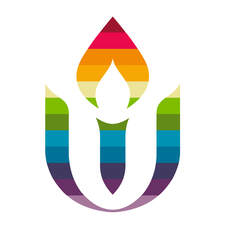|
“The Unitarian Church of Lincoln is a loving community, uniting reason with spiritual exploration to transform ourselves and the world.” Each Sunday we begin our worship serving with the aspirational words of our congregation’s vision statement. We are a community of transformation, we say, changing both ourselves and the world each time we gather. But why do we need to transform? Why change, especially when things are already going well for us? There are two ways to answer that question: First, transformation is necessary because we know that it is not going well for everyone, either in the world or our Unitarian Church of Lincoln community. We also know that our lives are interconnected; that what happens to one person matters to all of us. So we work to transform systems, from increasing access to affordable housing in Lincoln to how we welcome new folks into our community at UCL. Second, transformation is necessary because change is constant. Churches are long-lived places; here we get to work in decades rather than weeks, or months, or years. In the space of decades, everything changes. What music is popular, the average age of members, who the staff and minister are, the questions new people come in the door with – everything changes in a church over time. The question, then, is not if we will be transformed (that is a forgone conclusion) but whether that transformation will be accidental or purposeful. We are a season of change at the Unitarian Church of Lincoln. A large change in our budget at the end of 2023 has meant some difficult but necessary changes in staffing, described on page10 of the March 2024 newsletter. Nationally, the Unitarian Universalist Association is considering changes to Article II of our Bylaws, reframing the values commonly held among us. Here in Lincoln, we are just beginning a process to revise and update our congregation’s Mission and Vision statements, discerning who we are and where we are going in this post-covid world. I have been looking forward to this sermon series on transformation all year. Over the next few weeks we will cover transformation in our individual lives, in our congregation, and in the world. Your homework over this month is to thing about the transformation you want to see in each of those realms. Transformation is going to happen, either accidentally or on purpose. What is the purpose you want to aim for?
0 Comments
The story of my involvement with Unitarian Universalism is a story of two hymns. When my I was in high school, my parents moved us across the country, to upstate New York, where we began attending a Unitarian Universalist congregation. A year after we moved, the terrorist attacks on the World Trade Center and the Pentagon shook our community and country. In the aftermath, as many of my classmates were graduating and joining the military, I turned to the Unitarian Congregation of Binghamton New York- and a hymn, set to Sibelious’ Finlandia melody:
My country’s skies are bluer than the ocean, and sunlight beams on cloverleaf and pine; but other lands have sunlight too, and clover, and skies are everywhere as blue as mine. O hear my song, thou God of all the nations, a song of peace for their land and for mine. This was a vision for the world that I needed in that uncertain time. I eventually joined the Peace Corps after college, bringing along a UU hymnal with a post-it note on Lloyd Stone’s lyrics to Finlandia. A few months after I came home from the Peace Corps, hurting in body and heart for reasons too long for a newsletter column, I was sitting in a service at the First Unitarian Church of Baltimore when I heard “We’ll Build a Land.” We’ll build a land where we bind up the broken. We’ll build a land where the captives go free, where the oil of gladness dissolves all mourning. Oh, we’ll build a promised land that can be. We talk a lot about justice in Unitarian Universalist congregations. Our vision for the world is a big one: the world Stone describes as existing with peace among the nations, blue sky and clover all around. That vision calls us forward, whether through our organizing work with Justice in Action, or our attempts to make our own congregation a more welcoming and equitable place. The genius of this tradition is in the second hymn: we are not waiting on a promised land to descend from on high, but a promised land that can be, built by our hands and efforts. As we spend a month talking about Justice in our small groups and in worship, think about what grounds your work for justice in the world? What is the world that you are building? What vision of a promised land that can be calls you on? Photo by Zulmaury Saavedra on Unsplash In June, delegates to the Unitarian Universalist General Assembly will vote on some of the most substantial changes to our organizing documents in a generation. If passed, the proposal will change Article II of the Association’s bylaws from a list of seven principles and six sources to an interconnected set of values, ‘grounded in liberating love.’ We have centered love for a long time, both in Unitarian Universalism and here at the Unitarian Church of Lincoln. The proposed language, however, presents a theological question: liberation from what?
In our worship services in January, we’ll try to answer that question from a few different directions, considering systems of oppression, Buddhist concepts of liberation, emerging Unitarian Universalist theologies, and how liberation is inseparable from relationship. As the days start to get longer, and we start the long journey toward spring, we will spend the month considering love, and all the ways it frees us from what holds us back. Come join us. On December 10, the Unitarian Church of Lincoln will hold a congregational meeting to vote on nominees for our nominations committee, consider changes to our bylaws, and pass a congregational budget for 2024. The supporting documentation for this meeting can be found at unitarianlincoln.org/governance. We (senior minister and board president) are writing to highlight some significant parts of that congregational meeting agenda.
Bylaws: Over the past year, members of the congregation have been working to revise our congregation’s bylaws. The task force has put together a document outlining the major changes proposed, but we want to highlight two: A focus on readability and plain language, cutting the bylaws from over fifteen pages to eight. Removing the pledge requirement from membership, instead requiring that members “support the vision and mission of the Unitarian Church of Lincoln.” (This change was prompted, in part, but a change in how our denomination handles their Annual Program Fund: our payments to the UUA are now based on a percentage of our budget rather than the number of members we report). Budget: We have a significant change in our 2024 budget. While our pledge drive was successful, with generous support from members and friends of the congregation, our overall income is projected to be down in 2024. Over the last three budget cycles, we have depended on unusual sources of funding (Federal COVID relief funds, gifts from major donors, transfers from reserves) to meet our budget. We felt it was important to present a sustainable budget to the congregation. Unfortunately, in a year when our income is down, many of our fixed costs (ie. Insurance premiums, software subscriptions) have increased. Overall, this resulted in a twenty percent (approximately $100,000) gap between our projected income for 2024 and requested expenses. Because the Board has a fiduciary duty to the long-term financial viability of this congregation, and is required to submit a balanced budget, this year’s budget required some painful cuts. In the 2024 budget presented to the congregation, the following positions will be eliminated on January 1.
Additionally, several positions will have their hours (and corresponding job functions) cut, as of January 1:
There are significant programmatic cuts in the 2024 budget as well, including RGL curricula and supplies, advertising, guest music, and guest speakers. The full line item budget is available on the governance page of the website. These are significant cuts to our staff team, and will be painful for many of us. It is important to say that these cuts were budgetary, not evaluative: they are reflections of the financial challenges facing the church, not job performance. We have a fantastic staff, and remain proud of the work that we do every week at the Unitarian Church of Lincoln (UCL). It is also important to say that these cuts are the result of systemic factors beyond any staff team, Board, pledge base, or other set of decisions we have made as a congregation. Congregational engagement, from Sunday attendance to Religious Education enrollment, has dropped precipitously across the country over the last several years. We are not immune to these dynamics in Lincoln, though we have weathered them better than many congregations. Over the next few weeks, please attend the second of two congregational town halls on December 3 to hear more and ask any questions you have, as well as the congregational meeting on December 10 to vote on the bylaws changes and proposed budget. Both of these meetings will follow the church service on Sunday morning, and will be livestreamed at www.youtube.com/unitarianchurchoflincoln. Last month Oscar preached on the heritages of Unitarian Universalism built on a foundation of love. One of the bricks that has sat in our sanctuary over the last month represents the heritage of courage in our faith. Courage, because we have done hard things before. Courage, because we know we are better together. Courage, because what we build together matters. May it always be so. Kim Ziemann and Oscar Sinclair Our monthly themes at the Unitarian Church of Lincoln follow a sequence put together by Soul Matters, and shared among Unitarian Universalist Congregations across the country. For the 2023-24 congregational year, our themes highlight language from the proposed new Article II of the Unitarian Universalist Association’s bylaws.
This month, we are looking at a sentence from early in the proposal: “We draw from our heritages of freedom, reason, hope, and courage, building on the foundation of love.” I believe the folks that put together the Soul Matters themes chose to highlight “The Gift of Heritage” because it heritage is such a challenging and contested concept. To claim, as a faith, that we have a particular heritage to draw on, is a source of strength, but also a place of privilege. Heritage is challenging because we do not get to choose what it is, and yet many of us take pride in our heritage. My family name is Scottish, but what does it mean to be proud to ‘be from’ a place that I have never lived, and that has little impact on who I am? Pride in what we have inherited is a privilege for some of us, and ‘heritage’ has some ugly connotations. This month in worship, we are going to try to untangle some of what it means to be a faith community and people with heritages. What does it mean to acknowledge the fullness of what we have inherited, the good and the bad, while claiming the best of it? What does it look like to assume that we can and must do better than generations before us, while also appreciating that our ancestors were fully human, all capable of beautiful and terrible things? If Unitarian Universalism claims our heritages of freedom, reason, hope, and courage, how do we live into those values, and pass them on to the next generations? Our theme for the month of October is Generosity. In the most obvious way, this is tied to our annual giving campaign: over the course of the month, members and friends are putting in their pledges of financial and volunteer support for coming year, and from that information the congregation’s leadership is putting together the 2024 budget that our members will vote on in December. If you are a member, please turn in a pledge form, and consider increasing your pledge: inflation has affected everything from the health insurance premiums for our staff team, to the cost of software that we use to send out the eBlast every week.
More than simply asking for your generosity in pledging, however, I hope we can spend time in worship this month considering how we cultivate a generosity of spirit in this place. I was talking with one of our lay-leaders this week, and we were both struck by the need to talk about faith formation as a central task of the church. When we talk about transformation in our vision for the world, we are not just wanting to transform the world, making a more just and peaceful home. We are also committing to the work of transforming ourselves, becoming the best version of each of us, through engaging in this community. So this month, don’t just send in your pledge form (but definitely at least send in your pledge form!), think about how you will work to become the best, most generous version of yourself at the Unitarian Church of Lincoln. What do you need to move through that transformation? What do the other people in this community need from you, in order to do the same? Ingathering, held on August 27, marked the beginning of our congregational year together. Early fall is a time of transition at the church, as we move from summer planning into fall programming, and a time of transition at the Sinclair house: our daughter has just started first grade, and we are learning everything from the best route to walk to school, to how to navigate homework (rather, “independent practice,” as it is now called). It’s a time when the church is starting new things, but also providing a sense of continuity. Last week I met with member Christine Davis, who told me that until recently, “I didn’t realize…that the church could be a harbor for me any day of the week, not just for a church meeting or Sunday service.”
The Unitarian Church of Lincoln is many things: a harbor and continuity in uncertain times, a place of challenge and opportunity in times when we get complacent, and a community that we build, with care and intention, every time we gather together. My hope for the coming year is that it continues to be all of those things to all who need it, and that we continually ask ourselves and each other “who are we together?” On a more practical note, September is when summer planning turns into fall programming, so here are a few dates coming up that I have circled on my calendar: On Sunday, September 10, we are kicking off our annual giving campaign. We are approaching fundraising slightly differently this year, moving away from a once month pledge campaign in October, and toward a more interactive, and hopefully fun, way of talking about money. You’ll hear more about that in the worship service on the 10th, followed by a potluck organized by the annual giving campaign volunteers. Also on the 10th, we will be welcoming several new members to our congregation, and over the course of the fall will be developing a new, more streamlined, process for becoming a member of the Unitarian Church of Lincoln. Tuesdays in September (September 5, 12, 19, and 26), I am teaching a course on worship planning. This is a chance to get involved in the worship life of the church, if you want to become a worship associate or are just curious about the multitude of pieces that go into the 10:00 hour every Sunday morning. In September and October our Justice in Action team leaders will be holding house meetings to talk about the progress our interfaith organizing network has made over the next year, and what comes next. If you are interested in getting involved, and do not have a contact person yet, please reach out to me and we will get you connected. One of the largest adjustments in returning from sabbatical was getting used to the pace of programming at UCL again. This is a congregation that has a tremendous number of dedicated people doing interesting, engaging things. Almost every night there are multiple events, either on Zoom or at 6300 A Street, providing opportunities for socialization, justice making, and mutual support. The church calendar of upcoming events is available at https://www.unitarianlincoln.org/. As this year together begins, take a look at it, and think about who we might become, together. The start of the new congregational year is quickly approaching. On August 27, we will gather to hold our annual water communion and ingathering service, marking the start of a new program year at the Unitarian Church of Lincoln.
The start of a new year is also the time to try new things! Over the month of September, I will be holding a series of four sessions on how we plan and do worship a the Unitarian Church. Many of the worship associates will be a part of it, but it is also an opportunity to come see what goes one behind the scenes every week to prepare what the congregation sees on Sunday morning. If you’ve ever wondered about getting involved, or have an idea for a service you would like to lead, but do not want to commit to joining a new committee right now, this is a great opportunity to get a taste of worship planning. Further details will be announced in the coming months. Currently, the plan is to meet on four consecutive Tuesday nights: September 5, 6:00-8:00 PM Worship Planning 101: From blank page to service blurb. September 12, 5:30-6:30 PM (to accommodate the Board Meeting) Cultivating Worship: Structuring a worship service around a theme. September 19, 6:00-8:00 PM Putting It All Together: Writing an Order of Service, and working with music, religious education, and AV. September 26, 6:00-8:00 PM Practice: Trying out what we have been talking about for a month. I hope to see you there! Oscar It has been five months since I wrote a column for this space. During that time, my family and I have been living in the United Kingdom, while I have been on sabbatical and finishing up my doctoral studies. There is so much to talk about from that time and the experiences we have had – which I’ve started doing in video updates from the last several weeks here, as well as worship service for July 2.
Rather than take up this column talking about what I have been up to, though, I want to extend an invitation: sabbaticals are an opportunity to renew the joint ministry between a religious professional and the congregation, so part of what I would like to do this summer is to meet with as many members of the Unitarian Church of Lincoln as possible, to hear what you have been up to this spring, and what your hopes (and worries) for the future of this community are. To start, I’ve set aside three times when I’ll be roaming the coffee houses of Lincoln, ready and eager for drop in conversations:
Please go to https://calendly.com/revsinclair to set up a meeting time with me. I cannot wait to see you, and start the next chapter of our ministry together in Lincoln. -Oscar This is my last newsletter column of this congregational year. From January 15-June 15, Stacie, Ailish, and I will be living in Bessels Green, England, while I am on sabbatical. At the congregational town halls last month, I had a chance to answer practical questions about the sabbatical: I will not be checking my [email protected] email while I am away, nor do I plan to spend the last two weeks of June reading through five months of emails. If you have questions, or worries, or ideas while I am gone, we have put together a document, on the church website, with a contact for each area of the church I am involved in.
The town halls were also a chance to ask more open-ended questions. A few people have asked what I am most looking forward to during the sabbatical, and I have often answered “sleep.” I am looking forward to that, and plan to do little else the first two weeks. But more than rest, a sabbatical is also a chance to reflect on ministry. The first six years I have spent with the Unitarian Church of Lincoln have been defined by three big questions: How can we grow? How can we partner? How can we respond to the Covid-19 pandemic? While in England, I plan to reflect on those questions: are they still the central questions of our ministry in Lincoln? What questions might define the next six or seven years at UCL? This is not just a question for me, it is a question for the whole congregation. Over the next five months, the Board of Trustees is meeting twice a month, once to manage the business of the church, and again to brainstorm and think big about the future. Last week Linda Brown told me again that the lesson she thinks I have taught this congregation is that imperfection is okay. We are a group of people practicing being human together, and that means that we, collectively, will be messy, imperfect, and glorious – not despite the imperfection, but because of it. If that is the lesson we have learned together over the last five and a half years, then this is the time to embrace it. It is likely that some things will go wrong during the sabbatical. It is likely that at least once, I’ll manage to get myself well and truly lost somewhere in England. My hope, for both the congregation and my family, is that when that happens we pause, laugh at ourselves, and then go forward in joy. See you in June! -Oscar |
Details
AuthorRev. Oscar Sinclair serves as the Settled Minister for The Unitarian Church of Lincoln, Nebraska. Archives
March 2024
Categories |
contact us and WE WILL GET BACK TO YOU AS SOON AS POSSIBLE: |
SIGN UP TO RECEIVE
|
THE UNITARIAN CHURCH
|
|


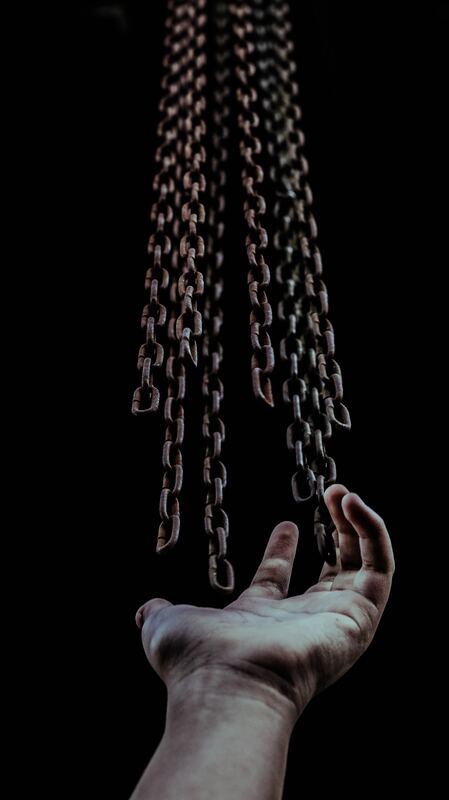
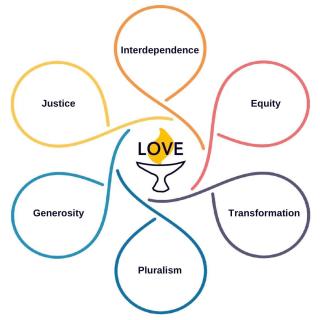

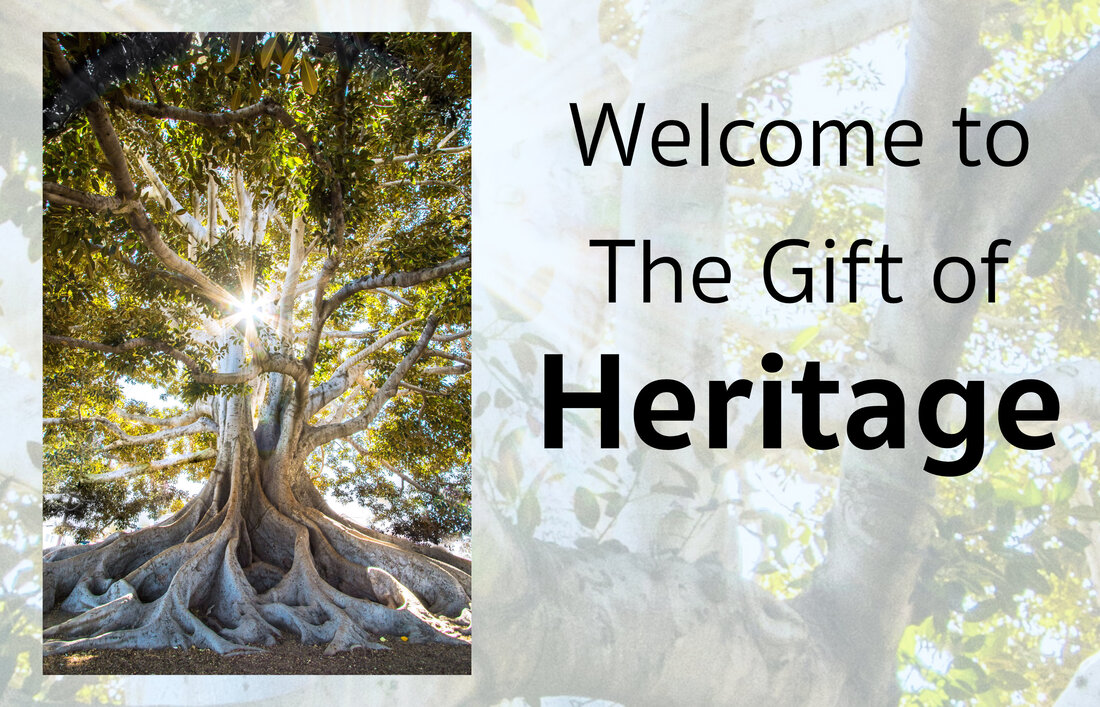
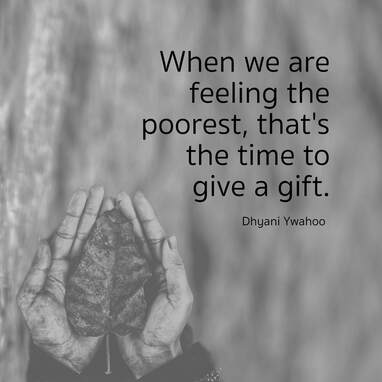



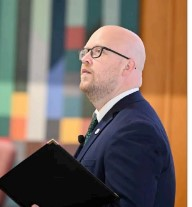
 RSS Feed
RSS Feed
